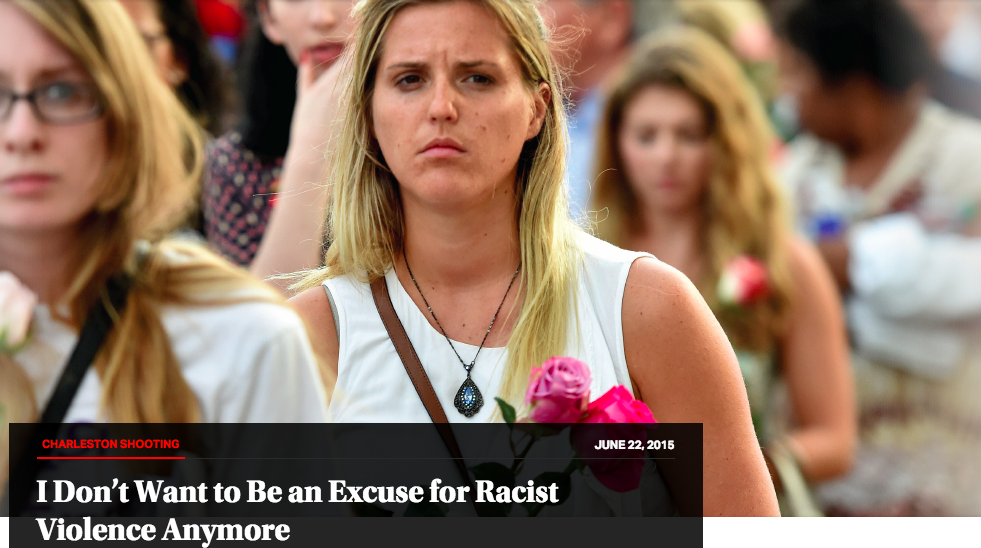There’s a movement of Southern women who are responding directly to sexist and racist ideology that they need protecting by angry, violent white male supremacists. Our opinion selection this week comes from The New Republic, “I Don’t Want to Be an Excuse for Racist Violence Anymore“:
“There is an important distinction between white women, a people, and the concept of white womanhood—one that holds that a white woman is the best thing you can be in America after a white man, and that it is the responsibility of white men to protect your virtue at any and all costs. This white supremacist and benevolently sexist ideology depends both on the subjugation of white women by white men, and on the subjugation of all people who are not white—by white people (including white women).
It isn’t just black Americans who are policed by this dual invocation of racism and sexism, and by the holding up of white womanhood as a paragon of purity. When Donald Trump announced his bid for the presidency last week, he dredged up a common fear about immigrants crossing the border from Mexico: “They’re rapists.” To protect the women of America—the white ones, because when we say “women,” we usually, by default, mean “white women”—we must practice this exclusion on the basis of race, Trump implied. This highly selective concern about preventing sexual violence is dependent on the peril of white women; Trump failed to mention that 80 percent of girls and women crossing that border are raped as they make the journey. Those girls and women aren’t white. Gender is always raced, and race is always gendered.
Statistically we, white women, need more protection from our white male counterparts.
“The reality is that rape, like most violent crime, is more likely to be intraracial than interracial. If we’re genuinely concerned about a sexual threat posed by black men, we should be focusing our energies on the safety of black women. A five-year-old girl is alive because she played dead, and, as Dr. Kali Nicole Gross wrote in Jet last week, “that the girl had the presence of mind to play dead among the bodies of likely family and friends, perhaps more than anything else speaks to the perils of being Black in America and the violence that Black people, especially Black women and girls face daily.” Six black women—Sharonda Coleman-Singleton, Cynthia Hurd, Myra Thompson, Ethel Lee Lance, Rev. Depayne Middleton-Doctor, and Susie Jackson—are dead because Roof claimed to want to protect white women. White womanhood might be an abstract idea; the murder of black people is not.”
The historical argument suggests that white women, though obviously discriminated against by white men, enjoyed the power they received through this racist protection:
“That we are victims of sexism does not erase our culpability in American racism. If anything, the powerlessness we feel as a result of sexism too often urges us to hold on to, and exert over others, what remaining power we have. For white women, that means the power gifted to us by the color of our skin. Few white women resisted lynching in the early 20th century. A gendered and raced pedestal isn’t always comfortable to stand on, but it comes with a lot of perks and not a small amount of power. When contemporary black feminists critique white feminists for failing to recognize, interrogate, and cede their own racial privilege, that complaint is rooted in history. The bonds of sisterhood can be strong, but too often, they have been weakened by some sisters’ willingness to continue benefitting from whiteness (or worse, their stubborn refusal to recognize that they do). While white women are people and white womanhood is an idea, it’s an idea that white women reinforce.”





